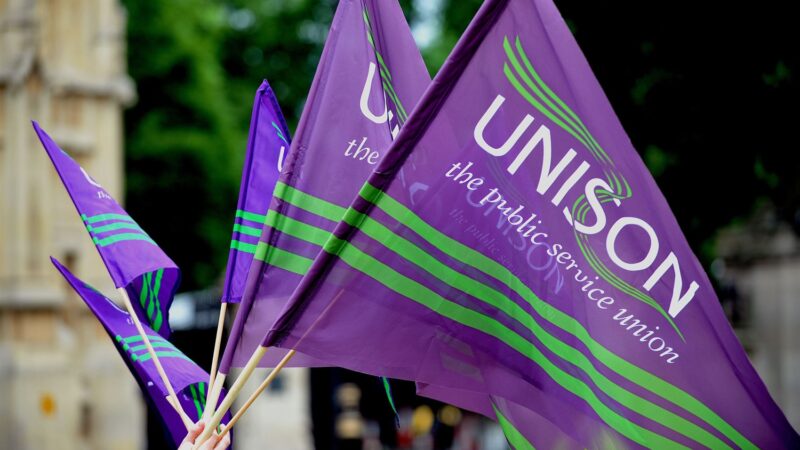
Public sector pay rises in line with inflation could be funded through tax increases for higher earners and the wealthy, a report has concluded after polling revealed strong support for such an approach.
The research, published today by UNISON, calculated that £10.1bn could be raised from an annual 1% tax on household wealth above £5m. The Institute for Fiscal Studies (IFS) estimated in March that a public sector pay rise in line with inflation would cost £10bn.
Polling by YouGov on behalf of UNISON found that 54% of respondents supported funding a public sector pay increase through the wealth tax proposed by the union.
The proposal was part of a wider analysis commissioned by UNISON from Landman Economics, which identified several tax changes that the union said could together raise £30.58bn a year to help tackle the cost-of-living crisis.
Commenting on the report, UNISON general secretary Christina McAnea said: “The financial crisis is nothing short of a disaster for public sector workers. The real value of their income has plummeted, leaving them struggling to deal with rising prices. It’s clear that without help, many may never recover.
“The incoming Prime Minister must make it a priority to help people such as hospital porters, teaching assistants and other poorly paid public sector employees through the cost-of-living crisis.
“This isn’t the time for pay freezes or tax cuts. The government must put struggling families first and provide a wage rise in line with inflation or above.”
The report – entitled Together we rise – outlines the impact of rising bills on low-paid public service workers and sets out a plan to reduce the impact of the cost-of-living crisis on lower and middle-income households.
The analysis proposes tax changes including increasing capital gains tax rates to match those for income tax – which UNISON said would raise approximately £8bn – and a 1% increase in corporation tax on top of the new 25% rate announced by the government for 2023 – which the union said would yield £2.8bn.
The research estimated that a 1p increase in the higher rate and in the additional rate of income tax would raise £1.65bn, while abolishing business asset disposal relief would save £2.7bn per year.
It also concluded that a phased reduction in financial subsidies for homeowners and private landlords would save around £8bn per year.
YouGov polling of 3,407 adults on behalf of UNISON revealed that 60% believe that public sector pay should be increased in line with or above inflation. The poll, conducted in June, found that a quarter of respondents support reducing the threshold for the top income tax bracket from £150,000 to £100,000 a year.
UNISON conducted a survey of public service staff earning £20,000 or less, employed in sectors including health, education, social care, local government, police, transport and energy.
The polling of 3,688 workers found that 80% of respondents have switched off or plan to switch off their heating in response to rising household bills, while almost a third said they have already skipped or are planning to skip meals.
The union revealed that 13% of those polled said they have avoided or are planning to avoid cooking hot food and 12% said they have used or plan to use a foodbank.
UNISON emphasised that its polling revealed the “disproportionate” impact of rising costs on public service workers, with nearly all (98%) of the respondents saying they had taken steps to cut costs. By contrast, YouGov’s poll found that 57% of the general public have taken such action.
Today’s report has been published as part of UNISON’s national cost-of-living campaign – also entitled ‘Together we rise’ – which calls for fair pay to tackle the economic crisis and for high incomes to be taxed “to make decent wages a reality”.
UNISON is calling on the next Prime Minister to “help protect low-paid workers against the pending recession and to prevent public services losing yet more frontline staff”.
In addition to demanding a “proper” pay rise for public sector workers, measures outlined in the report including increasing the minimum wage to £15 per hour from October and a reintroduction of the £20 per week Universal Credit uplift.
UNISON is also calling for improved access to affordable childcare and for reform of sectors including energy and housing where the union said private profits are “pushing up” prices.




More from LabourList
‘It’s one year since I became Britain’s youngest MP. Here’s what I’ve achieved so far’
Tribute: ‘David Lipsey’s joie de vivre is missing in Labour politics today’
Ellie Reeves: ‘One year in, the next phase begins – focused on living standards’